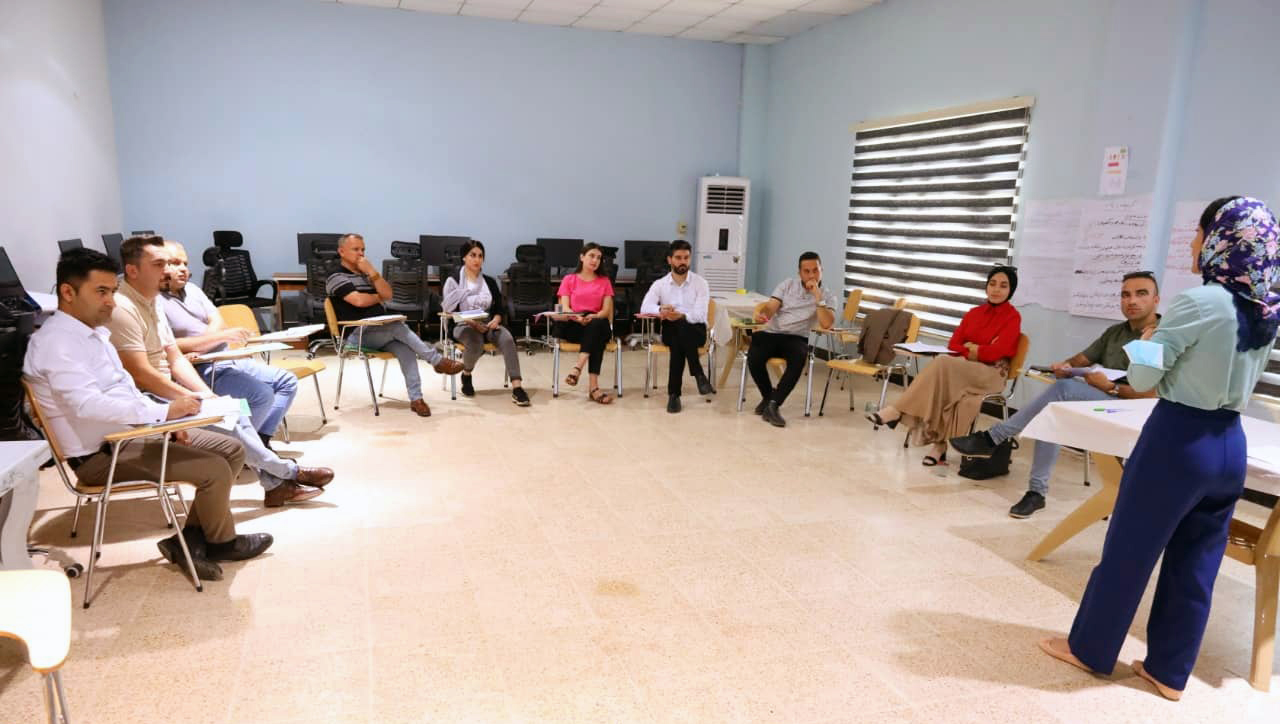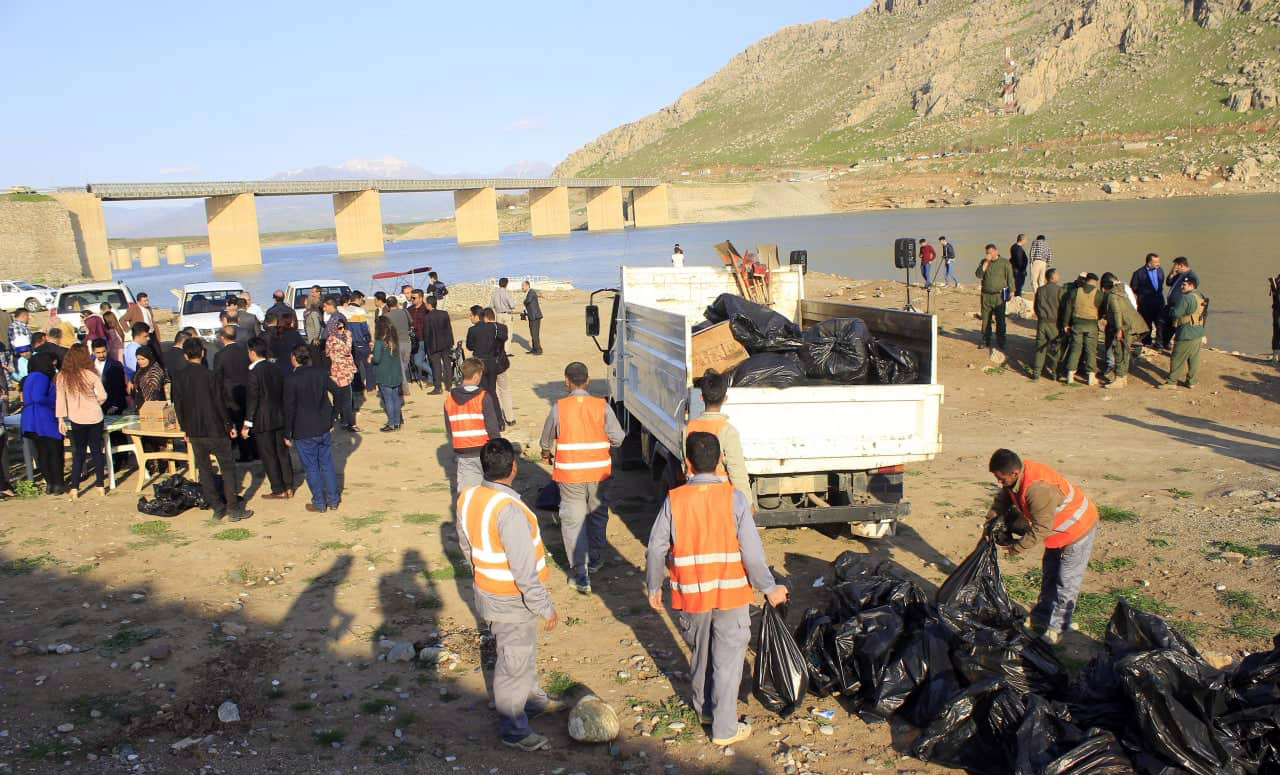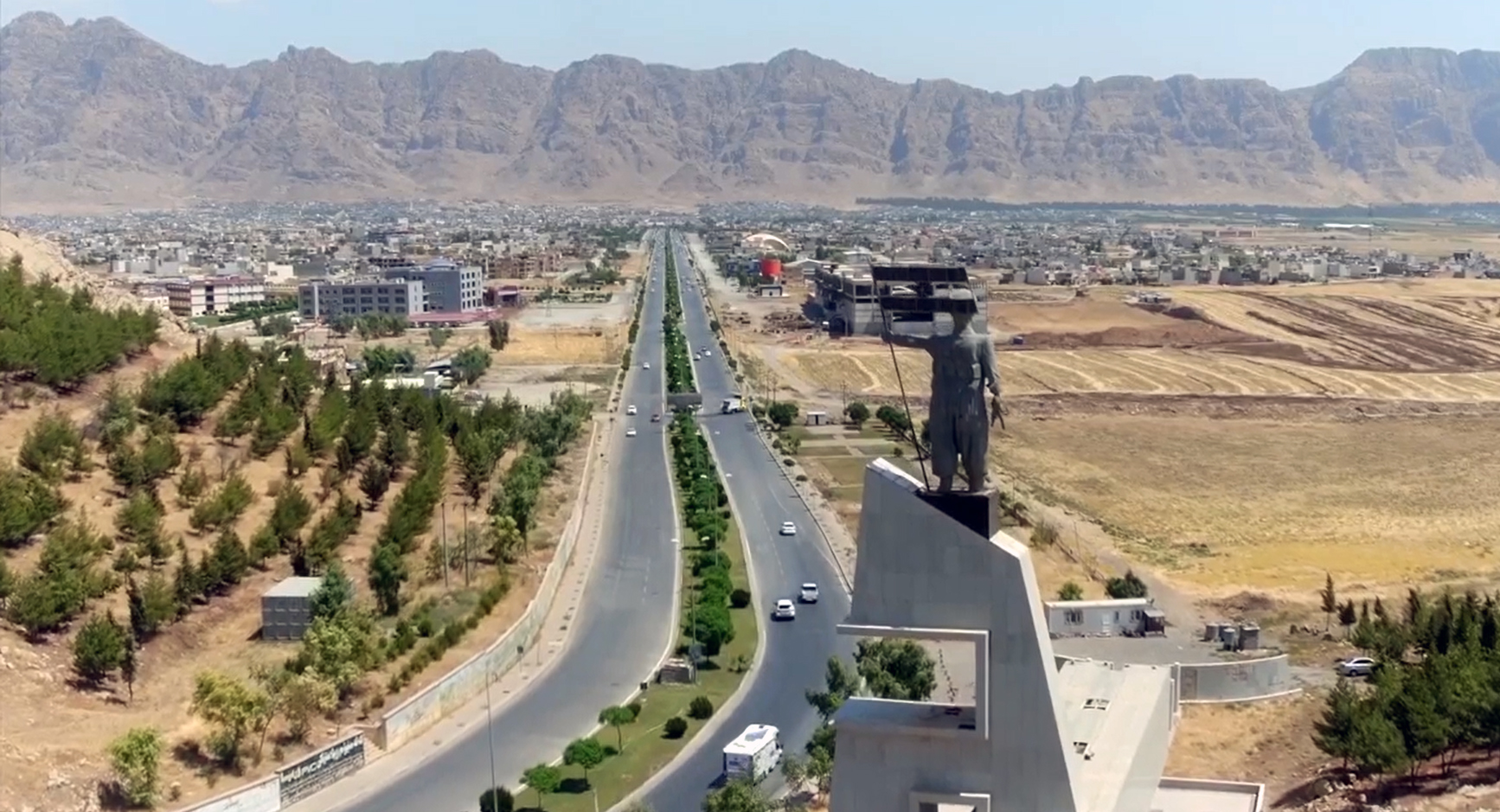Few international and local non-governmental organization NGOs have activities and projects in different areas of Raperin administration, due to armed conflict, border tensions and security threats.
There are about 60 politically-affiliated and independent organizations in Raperin administration, north of Sulaymaniyah province, but one fourth have continuous activities in the region, according to on the gournd investigations by KirkukNow.
"Many of the projects that have financial support from international organizations are given to only a small number of organizations," Yousef Omar, a civic activist, said.
Ranya district is the center of Raperin administration that has a wide border and consists of three districts, home to nearly 370,000 population, according to the 2018 statistics of the KRG Ministry of Planning.
“Most of the organizations that work in the center of the cities benefit from international assistance, yet the least move their activities and projects to the districts,” Omar said.
Raperin is known as an insecure area by international organizations due to its border with Iran and the threat of lately shelling by Iran and Turkey.
According to field follow up, due to Raperin administration’s borders with Iran, and the frequent bombings of the area, it has turned it to a battlefield and tension between Turkey and the Kurdistan Workers' Party (PKK), hence some organizations, especially the internationals, consider it an insecure area and sometimes interpreted as dangerous to organizational scope of work.
Our border is known as an unsafe area for organizations from outside Kurdistan because of its border with Iran
“Our border is known as an unsafe area for organizations from outside Kurdistan because of its border with Iran, the threat of warplanes, shelling and fighting between the PKK and Turkey in the mountains of Qandil (home to PKK fighters),” said Aram Qadir, head of Ranya Citizens Organization.
"The organizations see working in the area as a serious threat to the lives of their teams and therefore do not go to the border since they are afraid," Qadir added.
KirkukNow could not get information about any incidents faced by the organizations due to security threats.

Abdullah Ibrahim, director of the Migration and Crisis Response Office in the Raperin administration, said international organizations come to the border areas from time to time to carry out organizational activities, “but the areas close to the confrontation line are attentively dealt since international organizations have their own agendas, and their countries warn them not to go to the areas of hot conflict.”
He cited the example of an international organization that when they went to Raperin administration, they were instructed not to go across (Darband) area of Pishder district because of the risk of confrontation between Turkey and PKK.
"We are trying to eliminate these threats; however, organizational work has generally decreased since the war against ISIS (2014-2017) in the Kurdistan Region and Iraq," Ibrahim added.
According to previous investigations by KirkukNow, in other areas, especially in the camps for the internally displaced persons IDP in Duhok, a number of international organizations, including the United Nations, have suspended or reduced aids and projects.
Others blame local NGOs of recession and negligence.
“Some of the people who work in the region are busy with their private lives and are less concerned about cultural work and spreading awareness,” said Rukhosh Ahmad, a resident of Raperin administration.
The region needs the activities of organizations, especially in the field of women's awareness and drug awareness.
In the region, citizens are calling for activities and projects in the fields of social awareness, especially related to women, health and basic services.
“The region needs the activities of organizations, especially in the field of women's awareness and drug awareness, because the social and tribal conditions of the region are not favorable for women, and because it is a border area where drugs are traded."
In addition to security issues; political interference and monopoly and fragmentation of organizations are another reason for lack of activity.
"The organizations under the domination of the party have their own centers and offices and work under their command and supervision, have their own funds and budgets, but the independent organizations have no work and activities due to lack of financial assistance," Omar added.
“Most of the organizations remain only in name and are not active.”
In the 2013 budget law, funds were allocated to NGOs and continued in 2014, until in 2015 due to the financial crisis, the KRG cut the budget for NGOs and has not resumed since then.

The Office of NGOs – affiliated to the KRG – supervises the work of NGOs, according to Law No. (1) of 2011 on NGOs in the Kurdistan Region, which gives the right to any organization to freely have its branches and representatives in any region.
Saman Mohammed, a resident of Raperin, told KirkukNow that some organizations are working in the region, which are party organizations, “belong to the authorities and implement their party goals and motives during the activities, thus losing their duty.”
Out of 50 to 60 registered organizations in the Raperin administration, both party and independent; Not all are organized within a network, although according to the NGO Act, two or more organizations have the right to establish a network.
Shamal Ahmad, head of the board of environmental organizations in Raperin, said all the 16 environmental organizations have been gathered in a network, but organizations in Raperin have not been able to form a network.
There are about 6,000 NGOs in the Iraqi Kurdistan Region IKR, including hundreds of women's rights organizations, official statistics show.





